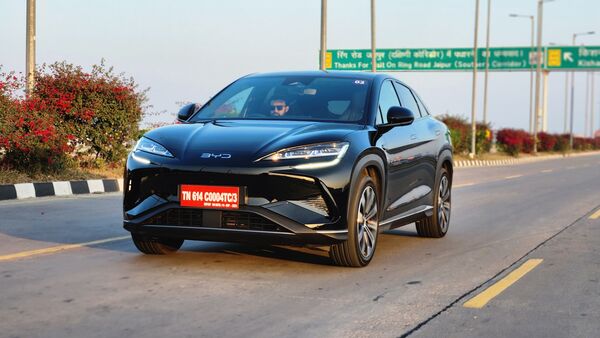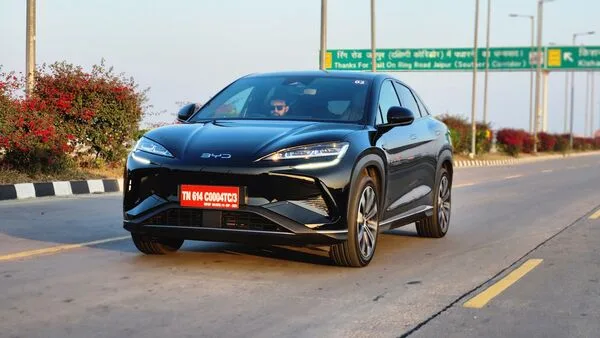According to its latest filing with the Hong Kong Stock Exchange, BYD produced 317,892 vehicles globally last month—a 0.9 per cent decline compared to July 2024.

View Personalised Offers on
According to its latest filing with the Hong Kong Stock Exchange, BYD produced 317,892 vehicles globally last month—a 0.9 per cent decline compared to July 2024. While overall sales rose just 0.6 per cent year-on-year to 344,296 units, this was a significant slowdown from the 12 per cent growth it saw in June.
Plug-in hybrids drag down overall numbers
The company’s pure electric vehicle (EV) segment still showed modest growth, but its plug-in hybrid electric vehicle (PHEV) business took a sharper hit. PHEV sales dropped 22.6 per cent, while production declined by 24.6 per cent year-on-year.
Also Read : BYD Atto 2 spotted testing in India, launch likely soon. What to expect?
The last time BYD posted a production fall was in February 2024, due to the timing of China’s Lunar New Year holiday. In this case, however, the decline appears to mirror wider cooling in the Chinese auto market, where an extended price war and regulatory watchfulness over discounting trends are affecting OEM plans.
High targets under pressure
BYD’s target is selling 5.5 million vehicles in 2025, but it has delivered only 2.49 million units up to the end of July. That means the company must average more than 602,000 units per month across the last five months—a demanding rate considering that its all-time monthly record is just shy of 515,000 units, set in December 2024.
The summer seasonal slowdown in China’s automobile market is another added burden. July is usually a weak month for sales, and while others such as Geely, Leapmotor, Xpeng, and Xiaomi Auto made record or near-record sales, BYD’s slightly above-zero growth has put its momentum under a microscope.
Also watch: BYD Sealion 7 review | Serious challenge to Koreans, luxury EVs | Range, features, drive experience
Competition stays strong, rivals gain ground
Among competitors, Geely sold 237,717 cars in July—its best since November 2024. New energy startups Leapmotor and Xpeng delivered 50,129 and 36,717 vehicles respectively, both setting new monthly records. Meanwhile, Xiaomi’s EV arm crossed the 30,000-unit mark for the first time.
In contrast, Li Auto’s July sales plunged about 40 per cent to 30,731 units, and Nio Inc. reported a 16 per cent drop from June, with sales slipping to their lowest since March.
Get insights into Upcoming Cars In India, Electric Vehicles, Upcoming Bikes in India and cutting-edge technology transforming the automotive landscape.
First Published Date: 03 Aug 2025, 08:30 am IST








